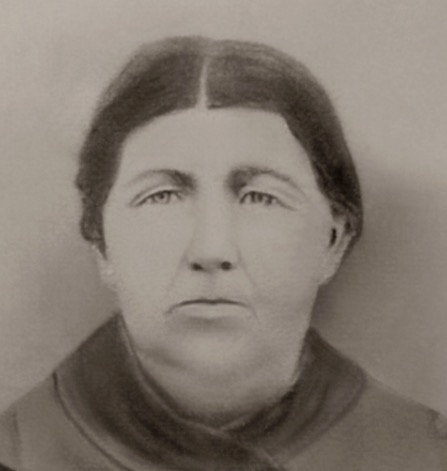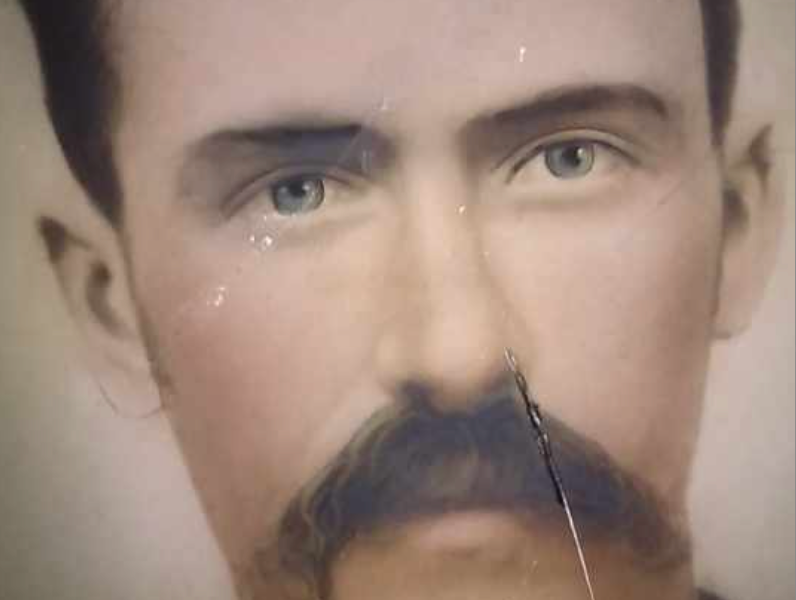Born May 29, 1870 to John Monroe Ganus and Olivia Rainwater, Robert Lee Ganus was their youngest child and the youngest brother to my great grandfather, William Franklin Ganus. I was thrilled when three of Robert’s grandchildren, Floyd Ganus, Mary Tedder and Dorothy Davis introduced me to Robert through their memories of him. Today I share the second part of his story. (You can find part 1 here.)
“Robert , known to some as Bobby, was a well respected civic leader in the community near Grovania Church. He was in charge of the annual road building crews there. Each summer all adult men in the community had to work 3 weeks in building local roads. This occurred in late summer after the crops were laid back waiting for harvest. He was also the election judge for the local voting precinct. This meant he ran the local election and made sure all ballots were correctly counted. He would read aloud each ballot vote to at least 2 counters who would tally the votes. If both agreed on the count then the vote was final, and he sealed the ballot box with tally sheets to the county courthouse. Also as election judge he was responsible for collecting the local poll tax. He had to keep meticulous records as the poll tax determined who could vote in the election and he had to pay this to the county commissioners.
“I believe he would be horrified to know the toll tax is now considered to be a discriminator to keep African Americans and poorer people from voting. I was always told he was a leader in encouraging non-discrimination against Native Americans and African Americans. I was told he believed that all cemeteries should allow all races to be buried there. Whenever he hired a black man to help, he would have them sit with the family at lunch. However as was the custom of the time, at harvest time with mixed crews the African Americans were set a table outside. My father also told of race troubles on the county road crews, which Robert averted by arming the white workers with pick handles (pick handles are easily separated from the pick and are similar to a bat in size). So although he was a forward thinker, he was also a man with beliefs of this time. He was not active in church activities although he always claimed his church was Mormon. Being over 5 miles from the church in times before automobiles and married to Stella who claimed to be a Methodist may have contributed to this.
“A family story often retold is about his friendship with Chief Berryhill, chief of the Creek Nation. When Oklahoma became a state in 1907, Indian rolls were created to identify the Creek Indians. Chief Berryhill offered to put Robert on the rolls so that he would be eligible for future Indian benefits. He refused to put his name on the rolls, because of his honesty.
“He was an accomplished farmer for his time. He and Stella always had a big bountiful garden. He had a blacksmith shop and was capable of metal working tasks. He had an orchard, including peaches, apricots, and black walnuts. The farm was well kept with well-built buildings and shade trees. In 1931 or 1932, he suffered health problems, which prevented him from doing the arduous tasks on the farm. From that point until his death, Floyd or Monroe farmed the property.
“To all of us grandchildren, he was a very quiet person who rarely spoke. He was that person in the background who was looking out for the safety of us grandchildren. Thus rarely would any of us get away with not abiding his unsaid rules for our safety without him yelling for us to quit, get out of there, etc. Also a good example would be where he rushed to shoot the rooster which attacked his grand daughter. He sat in his chair in the corner of the living room with his radio tuned to the 6 o’clock news. He would often drink a glass of Alka Seltzer before retiring.
“In March 1952 he suffered major health problems. All three daughters came to care for him and the front room was converted into a hospital for him. The three sons checked on him daily. For the final week he was in a comma with the doctor saying that he could not do anymore to help him. He died 25 March 1952 at the age of 81. He was buried in the Okmulgee City Cemetery.”
Thank you Floyd, Mary and Dorothy for helping me to get to know Robert.
Copyright © Michelle G. Taggart 2015, All rights reserved






I can picture Robert now – a strong, principled man with a soft spot for the children. But how he drank Alka Seltzer every night blows my mind. I remember drinking it once — that was one time too many for me.
Yes, Floyd, Mary and Dorothy did a good job painting a picture of him. Having them share their memories really underscores the value of blogging and connecting on social media. I would not have known anything beyond the dry facts of a census and a few other records without their shared memories.
Do you remember Bromo Seltzer by any chance? I think it was more for headaches. We had both in our household and I actually liked them both for some reason. I liked the fizz.